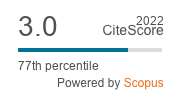Article | Open Access
Reasonable Accommodation as a Gateway to the Equal Enjoyment of Human Rights: From New York to Strasbourg
| Views: | 3291 | | | Downloads: | 2329 |
Abstract: The UN Convention on the Rights of Persons with Disabilities (CRPD) explicitly embeds the concept of reasonable accommodation within the principle of non-discrimination. Article 2 of the CRPD unambiguously recognizes that reasonable accommodation is vital in enabling persons with disabilities to enjoy and exercise their rights on an equal basis with others. This article argues that in the ten years since its entry into force, the CRPD has stimulated a process of cross-fertilization. In particular, it contends that the CRPD has played a crucial role in the advancement of disability equality, and in the recognition of reasonable accommodation as a gateway to the equal enjoyment of all human rights within the European human rights system. By adopting a legal perspective and a traditional doctrinal approach, this article focuses on relevant European Court of Human Rights (ECtHR) case law. It shows the gradual adoption by the ECtHR of the concept of reasonable accommodation as an essential element to remove specific barriers or disadvantages to which a particular disabled individual would otherwise be subject. The primary emphasis of this short article is on the ECtHR case law and on the extent to which it has translated the CRPD and the work of the CRPD Committee into the European human rights system.
Keywords: disability; discrimination; equality; human rights; legislation; reasonable accommodation
Published:
© Delia Ferri. This is an open access article distributed under the terms of the Creative Commons Attribution 4.0 license (http://creativecommons.org/licenses/by/4.0), which permits any use, distribution, and reproduction of the work without further permission provided the original author(s) and source are credited.




